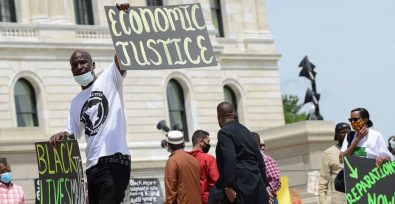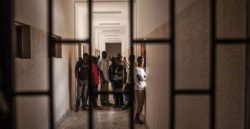A guaranteed income program in the U.S. is making waves by addressing the one family’s legacy of slavery. Launched in Louisiana by the America Civil Liberties Union (ACLU) under their Truth and Reconciliation Project, the initiative is partly funded by Deacon Leroy “Buck” Close and Gracie Close, descendants of a family that amassed wealth through slavery. The program provides $1,000 monthly to participants like Janell Landry, offering both financial support and acknowledgment of the historical inequities tied to the criminal justice system.
The Closes, whose wealth can be traced back to land worked by enslaved people, made a $1 million donation to the program as a form of reparations. They’ve sought to confront their family’s history, stating in a Newsweek op-ed,
“For us, the benefits of slavery have not ended. They are a very real part of our day-to-day lives. The institution of slavery allows us to have high incomes without having to work. It allows us the luxury of feeling secure in our lives. In contrast, the descendants of the people owned by our ancestors have had the opposite experience. Many experience poverty, and all experience structural racism, especially those in the South.”
Addressing injustice through reparations
This program is part of a growing movement in the U.S. blending universal basic income with reparations, aiming to redress the legacies of slavery. Landry, one of the participants, highlighted the challenges of living in a state with high rates of incarceration and police misconduct. After protesting a warrantless search of her home in 2020, she was imprisoned on questionable charges, lost her pregnancy from the stress, and struggled to regain stability.
Landry’s story echoes the systemic inequalities rooted in the history of slavery, where Black Americans face disproportionate rates of incarceration and police harassment.
The Independent reports,
“Slavery and racism casts a long shadow over the history of criminal justice in the US, from the origins of many modern police departments in slave patrols to the historical overlap between lynch mobs and legal executions.”
A call for change: what you can do today
Louisiana’s guaranteed income program is just one example of efforts to address the ongoing effects of historical slavery. However, much more work is needed, especially in reforming the criminal justice system.
The issue of forced labor continues to persist, particularly within the U.S. prison system. Our campaign, Amend the Thirteenth, shows the direct connection between historical slavery in the United States and prison slavery via the constitution written during the abolition of slavery in 1865.
Your voice is essential in advocating for true justice. Join us in calling for an end to prison slavery and involuntary servitude once and for all. Sign our petition today and help us build a future where no one is subjected to forced labor, regardless of their circumstances.
Radical change is possible. Donate to continue this fight, pushing for the kind of change that history shows us change can be achieved.
Explore our in-depth analysis of why historical slavery is relevant to today’s fight.








Freedom United is interested in hearing from our community and welcomes relevant, informed comments, advice, and insights that advance the conversation around our campaigns and advocacy. We value inclusivity and respect within our community. To be approved, your comments should be civil.